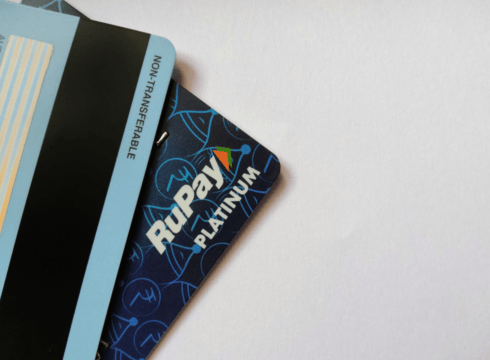In a letter to FM Nirmala Sitharaman, the industry body said that payment aggregator fintechs continue to lose on revenue lines for processing payments through the card infrastructure
The PCI said that RuPay’s international counterparts such as Visa and Mastercard are allowed to charge MDR and sought a level playing field
Restoration of MDR will drive investment in acceptance infrastructure by banks and fintech to cater to unserved and untapped segments, the PCI said
Inc42 Daily Brief
Stay Ahead With Daily News & Analysis on India’s Tech & Startup Economy
The Payments Council of India (PCI), which represents over 85% of non-bank companies in the country’s payments ecosystem, has reportedly written to Finance Minister Nirmala Sitharaman seeking restoration of the merchant discount rate (MDR) on RuPay debit cards.
In its letter, the industry body said that payment aggregator fintechs continue to lose on revenue lines for processing payments through the card infrastructure, ET reported.
Asking for a level playing field for RuPay “to compete with its peers to attain its full potential”, the PCI said that RuPay’s international counterparts such as Visa and Mastercard are allowed to charge MDR.
As per the industry body, restoration of MDR will drive investment in acceptance infrastructure by banks and fintech to cater to unserved and untapped segments, foster innovation in merchant payment solutions. Moreover, it will bring long-term sustainability to the domestic card infrastructure, the PCI said.
“There has been significant growth in the acquiring infrastructure across the nation, however, the required investment and growth in acceptance infrastructure are possible through the restoration of MDR for the RuPay debit card,” the letter signed by Vishwas Patel, chairman of the PCI, said.
In addition, the PCI is also pushing to meet finance ministry officials in June to discuss the issue.
MDR is a fee that is paid by the merchants to the banks for processing every card payment. While the card-issuing bank gets a share of it, the remaining amount is distributed between the payment network and point-of-sale terminal providers.
Earlier, the merchants processing transactions across digital payment systems used to levy MDR. The amount used to be shared among the acquiring bank, fintech partner and issuing bank, while 10% of the amount was paid to the National Payments Corporation of India (NPCI) as switching fees.
In a bid to give a push to adoption of digital payments by small merchants, MDR on the Unified Payments Interface (UPI) and RuPay debit cards was waived in January 2020.
Last year, the Reserve Bank of India allowed linking credit cards with UPI. The central bank said that the facility for credit card linkage with UPI will only be available on RuPay credit cards to begin with. There were speculations that UPI payments via credit cards would attract a MDR.
Last year, Patel also claimed that the banks appropriated all the monetary support provided by the Centre to compensate for zero-charge levy on UPI transactions.
“…all the support money provided by the finance ministry has been appropriated by the banks only (no single bank has even a significant single digit volume in UPI)… none of the payment aggregators (PAs) or facility provider(s) received anything,” Patel, who is also the executive director of fintech firm Infibeam Avenues, said in a tweet.
The government also lowered the allocation meant for compensating fintech startups and banks that facilitate free UPI transactions as it proposed an allocation of INR 1,500 Cr for promotion of digital payments in Budget 2023.
Earlier this year, the PCI sought about INR 8,000 Cr towards MDR support for FY24, including INR 6,000 Cr for UPI person-to-merchant transactions and another INR 2,000 Cr for RuPay debit card transactions.
{{#name}}{{name}}{{/name}}{{^name}}-{{/name}}
{{#description}}{{description}}...{{/description}}{{^description}}-{{/description}}
Note: We at Inc42 take our ethics very seriously. More information about it can be found here.


